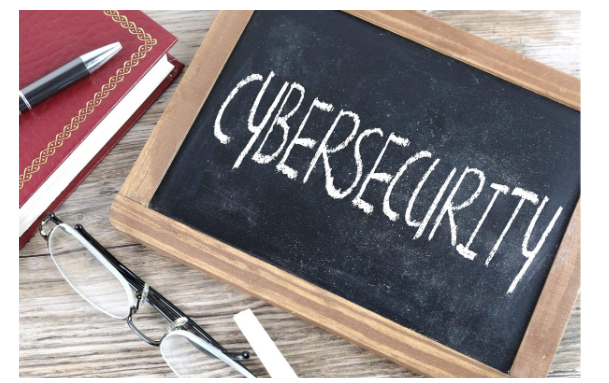Introduction
Are you the type of person who wants to learn about cybersecurity but doesn’t know how? Don’t worry—you are in the right place. In this blog, I will give you tips on keeping yourself safe and secure on the internet while in school or college. You will be learning the fundamentals of cybersecurity and how to protect yourself from unethical hackers.

Cybersecurity
What is cybersecurity and why is it important on the internet? Well, in simple terms cybersecurity is keeping yourself secure from people who are trying to steal your information. These people are called “hackers”, they steal your data, then sell it in the black market, and make money off of it. To prevent hackers from getting your information, you need to know how to protect yourself from them.
According to recent studies, students are one of the most targeted people for the cybersecurity attack. The students mostly get scammed through either emails or social media. The cyber threats have increased a lot recently due to the students being active on social media and doing most of their things online.
This was a small detail about cybersecurity and how threats have increased among students. Now I will be talking about how students can protect themselves from cyber attacks and scams.

Strong and Unique Password
Using strong passwords that are also unique is one of the easiest and most effective ways to protect yourself from cybersecurity threats. Students should avoid easily guessable passwords such as names or birthdays. Using your name as a password is one of the easiest ways to get hacked because finding this type of information is easy for hackers.
Use a password manager to keep a record of your passwords so if you forget then you can check the password manager to find the password. Also, avoid using the same passwords for different apps or websites because this is an easy way to lose everything. Now, I will be giving you a list of easy and guessable passwords and also challenging passwords.
Easy:
- 123456
- Password
- Qwerty
- Abc123give
- 111111
Difficult:
- Giraffe$4Dance!
- Sunny@Day3#Sky
- Blue#Ocean9$Wave
- Pineapple!7&Fruit
- Coffee2#Mug@Morning
Public and Private Wi-Fi/VPN
Even though public wifi is very useful and free, it can also be very dangerous and a cybersecurity concern. Nowadays, students like to sit in cafes or restaurants and do their work while using the free wifi, which makes it easy for them to get hacked or scammed.
Students or anyone should avoid doing any banking or financial transactions over public wifi. If students need to use the wifi then they should use a Virtual Private Network (VPN) to keep their sensitive information secure. VPNs can put a filter on the IP address for the device which makes it difficult for hackers to find the information or track the online activity of an individual. There are a lot of different types of VPNs that can be used to protect yourself from cybersecurity threats. Now, I will be giving a list of the most common and reliable VPNs that you can use for your benefit.

Best VPNs
- ExpressVPN- Best speeds and security features
- NordVPN- User-friendly interface and double encryption
- Surfshark- Unlimited connection on multiple devices, affordable
- CyberGhost- Good performance and user-friendly
- Private Internet Access (PIA)- Strong security and privacy
Software
Not keeping your software updated could be very dangerous because it can get malware on the software. Which could harm the device and the information inside. Updating your software can prevent a lot of viruses on the device because once it is up to date, it becomes difficult for hackers to get any information about your information.
You can update your software manually, but it is best to have an automatic update. Automatic updates can save a lot of time and do not require an extra step for the user. Check your updates regularly to make sure there are no updates for the device. This way, you can prevent your device from getting any type of virus that could potentially harm its security.
Update
You can update your software manually, but it is best to have an automatic update. Automatic updates can save a lot of time and do not require an extra step for the user. Check your updates regularly to make sure there are no updates for the device. This way, you can prevent your device from getting any type of virus that could potentially harm its security.

Phishing Scam
These types of scams usually come in emails or messages where it asks you to click on certain links. The links are not legit and you can be hacked by the people who sent the message. If you ever get these types of emails, check the sender’s email address to ensure there are no typos on their email. If there are any typos, do not click on the links they send.
A common phishing attack involves creating a certain type of urgency to make you react quickly so you don’t get enough time to think if the email is real or not. They usually say “Claim your account immediately or else your account will be suspended”.
Even though these tips are enough to give you cybersecurity knowledge, it is important to have practice for using social media and handling your personal information such as passwords, addresses, SSNs, etc. In the next part of the blog, I will explain the best practices for social media and personal information.
Digital Footprint

The things you do on social media, such as posting pictures of yourself are considered a digital footprint, and believe it or not, whatever you post on social media stays there forever. Be careful of the pictures/information you post on social media, especially high schoolers because students at this age love to post a lot on social media. But they don’t realize that the things they post stay there forever. One thing you can do is search yourself online to see if there is any information about you going viral and if there is, make sure to take steps to remove the information.
Conclusion
As a student, it is important to prioritize cybersecurity fundamentals because no matter what career field you choose, it involves a bit of technology. We need to keep our digital information secure.

